Java, Istio, Kubernetes, Docker - we invite you to IBM meetings in Moscow and St. Petersburg

Hi, Habr!
Finally, before the summer break, we decided to please the respected subscribers with a series of mitaps! Next week there will be three of them! And not only in Moscow ...
')
- June 19 at 18:00 (Moscow) in the IBM office mitap on Java technologies. We will have Java Champion, Sebastian Dashner . We will discuss the use of Java in the new cloud realities.
- June 20 at 18:00 (Moscow) in the IBM office mitap on Service Mesh - Istio . We have long wanted to do and here come to us the main contributors of the project. For example, Vadim Eisenberg is among the top 5 people of Istio contributors.
- June 20 at 6 pm (St. Petersburg) - Sebastian Dashner will perform with Denis Tsyplakov at the DataArt platform on Java and microservice architectures
For a detailed program and registration (the number of places, unfortunately, is limited!) - see below!
June 19 at 18:00 (Moscow) in the office of IBM mitap on Java technology
Our guest will be Java Champion Sebastian Daschner on June 19 at 18:00 in the IBM office.
We will talk about what is happening with Java and application servers in the cloud era? Oracle introduces a charge for using Java on servers and workstations. Java EE turns into Jakarta EE. Often, developers use clean jvm-based solutions for deployment in containers in private and public clouds, saving resources by excluding the usual JEE libraries from application servers.
This time our guest will be a real Java Champion, marked on the Oracle Java website - Sebastian Dashner. He will talk about how to build applications in terms of using containers based on the open source application server OpenLiberty, as well as the promising structure of the Java community (OpenJDK and AdoptOpenJDK, ...) and Jakarta EE, as well as the new MicroProfile standard for creating microservice applications .
Sebastian Dashner will tell you how to build applications using containers based on the OpenLiberty open server application, as well as the promising structure of the Java community (OpenJDK and AdoptOpenJDK, ...) and Jakarta EE, and the MicroProfile standard for creating microservice applications.
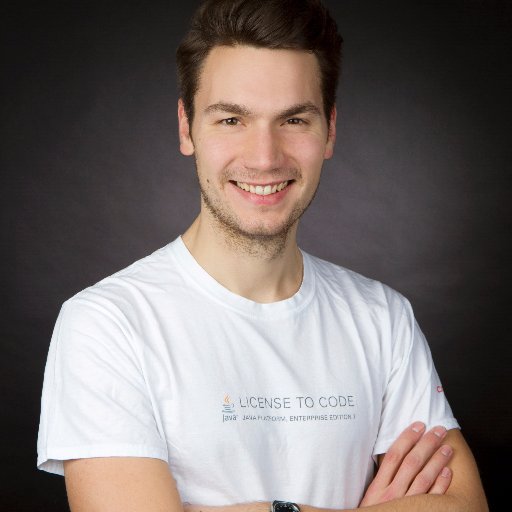 Sebastian Dashner (Sebastian Daschner)
Sebastian Dashner (Sebastian Daschner)
Java Champion , author and instructor, Java development professional (including EE). He is the author of the book Architecture of Modern Java EE Applications . Sebastian participates in JCP, helps shape future Java EE standards, works in JAX-RS, JSON-P and Config expert groups and collaborates on various open source projects. For his contributions to the Java community and ecosystem, he was recognized as the Java Champion, the Oracle Developer Champion and the JavaOne Rockstar.
In addition to Java, Sebastian is also an active user of Linux and container technologies such as Docker. He is the author of the blog , it can be found on Twitter: @DaschnerS .
17:30 - 18:00 Meeting participants, welcome coffee.
18:00 - 18:45 OpenLiberty is an unknown jaguar among OpenSource application servers.
18:45 - 19:00 Questions and Answers
19:00 - 19:45 Development of Java-based microservice applications on OpenSource technologies (demo)
19:45 - 20:00 Questions and Answers
Registration for Java MAP - Moscow - June 19 (Wed)
We will talk about what is happening with Java and application servers in the cloud era? Oracle introduces a charge for using Java on servers and workstations. Java EE turns into Jakarta EE. Often, developers use clean jvm-based solutions for deployment in containers in private and public clouds, saving resources by excluding the usual JEE libraries from application servers.
This time our guest will be a real Java Champion, marked on the Oracle Java website - Sebastian Dashner. He will talk about how to build applications in terms of using containers based on the open source application server OpenLiberty, as well as the promising structure of the Java community (OpenJDK and AdoptOpenJDK, ...) and Jakarta EE, as well as the new MicroProfile standard for creating microservice applications .
Sebastian Dashner will tell you how to build applications using containers based on the OpenLiberty open server application, as well as the promising structure of the Java community (OpenJDK and AdoptOpenJDK, ...) and Jakarta EE, and the MicroProfile standard for creating microservice applications.
 Sebastian Dashner (Sebastian Daschner)
Sebastian Dashner (Sebastian Daschner)Java Champion , author and instructor, Java development professional (including EE). He is the author of the book Architecture of Modern Java EE Applications . Sebastian participates in JCP, helps shape future Java EE standards, works in JAX-RS, JSON-P and Config expert groups and collaborates on various open source projects. For his contributions to the Java community and ecosystem, he was recognized as the Java Champion, the Oracle Developer Champion and the JavaOne Rockstar.
In addition to Java, Sebastian is also an active user of Linux and container technologies such as Docker. He is the author of the blog , it can be found on Twitter: @DaschnerS .
Program
17:30 - 18:00 Meeting participants, welcome coffee.
18:00 - 18:45 OpenLiberty is an unknown jaguar among OpenSource application servers.
18:45 - 19:00 Questions and Answers
19:00 - 19:45 Development of Java-based microservice applications on OpenSource technologies (demo)
19:45 - 20:00 Questions and Answers
Registration for Java MAP - Moscow - June 19 (Wed)
June 20 at 18:00 (Moscow) in the IBM office mitap by Service Mesh - Istio
We were going, going and finally going! The first isap on Istio (like no one else did?) On June 20th in Moscow!
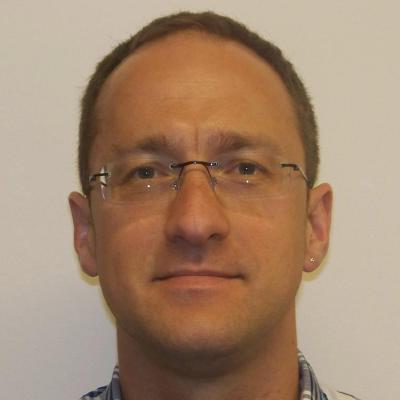
Vadim Eisenberg , Lead Developer, Istio contributor, IBM Research Haifa
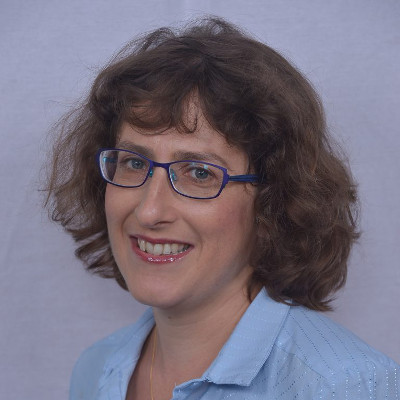
Vita Bortnikov , Cloud and Blockchain Platforms, IBM Distinguished Engineer
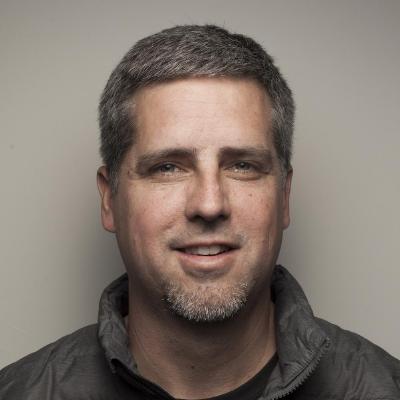
Phil Estes , Docker Captain, IBM Distinguished Engineer
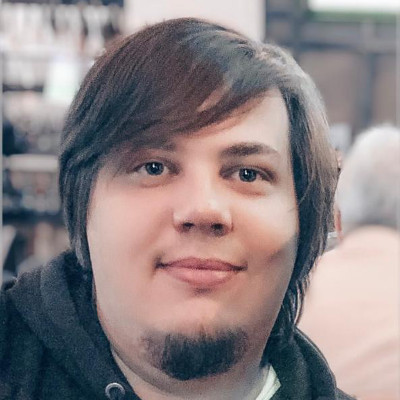
Maxim Chudnovsky , Head of IT, Sberbank - Technologies
18:00 - 18:30 Concept of service mesh and the history of the development of Istio
18:30 - 19:00 Architecture and main components of Istio
19:00 - 19:30 Hints & tips working with Istio
19:30 - 20:00 Service mesh technologies in the financial sector
Registration for the İstap by Istio - Moscow - June 19 (Th) .
Why do you need to spend time and come?
- We will have the guys from the Istio team! Once IBM Research Laboratory in Haifa developed the amalgam8 project, which later became Istio. And now one of the employees of the Laboratory (Vadim Eisenberg) is among the top 5 contributors of the entire Istio project!
- Actually, the presence of specialists from Haifa is already enough, but in addition to them, we also have Phil Estes (Captain Docker, IBM Distinguished Engineer).
- And we will have stories about the process of adapting Istio in a “bloody enterprise”, at least from the guys from Sberbank.
What will happen on mitap:
- Let's talk about how Istio was created and why the service mesh direction appeared.
- Tell you what Istio / service mesh.
- Let's discuss when it is necessary to use a service mesh, and when not.
- Let us see how Istio and Kubernetes compare.
- Show live demo.
Our speakers

Vadim Eisenberg , Lead Developer, Istio contributor, IBM Research Haifa

Vita Bortnikov , Cloud and Blockchain Platforms, IBM Distinguished Engineer

Phil Estes , Docker Captain, IBM Distinguished Engineer

Maxim Chudnovsky , Head of IT, Sberbank - Technologies
Program
18:00 - 18:30 Concept of service mesh and the history of the development of Istio
18:30 - 19:00 Architecture and main components of Istio
19:00 - 19:30 Hints & tips working with Istio
19:30 - 20:00 Service mesh technologies in the financial sector
Registration for the İstap by Istio - Moscow - June 19 (Th) .
June 20 at 19:00 (St. Petersburg) - Java Guru meetup - at the DataArt platform on Java and microservice architectures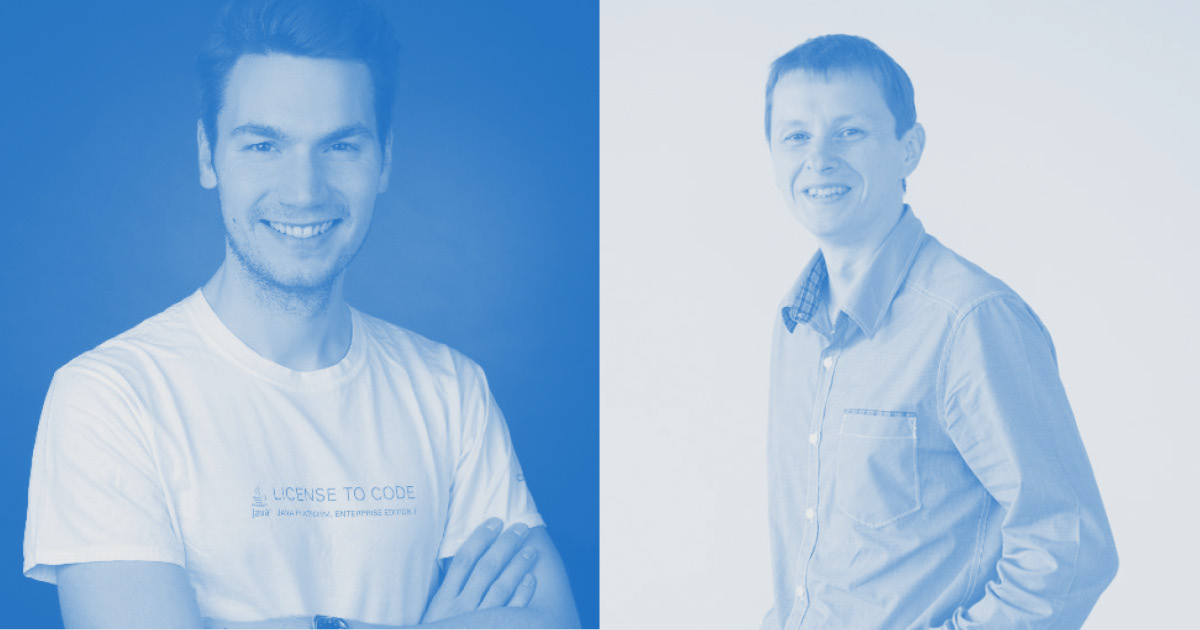
IBM and DataArt are bringing two Java gurus to St. Petersburg. Sebastian Daschner , Java Champion, Java development professional, and Denis Tsyplakov , Solutions Architect, DataArt Voronezh will perform at a special Java development meeting .
Report in English.
OpenSource more and more goes into the category of everyday and essential components of our lives. This process is happening all over the world, including Russia. Why? Large vendors go in the direction of OpenSource for simplicity and unification of solutions deployment in the clouds.
What happens with Java and application servers to the cloud era? Oracle introduces a charge for using Java on servers and workstations. Java EE turns into Jakarta EE. Often, developers use clean jvm-based solutions for deployment in containers in private and public clouds, saving resources by excluding the usual JEE libraries from application servers.
What if the application server can be so light and so flexible that it allows you to take advantage of Enterprise Edition platforms in containers with minimal impact on the resources consumed? And what if we can make the application server the basic platform for microservice architectures?
I'll tell you how to build applications in terms of using containers based on an open-source application server OpenLiberty, as well as the perspective structure of the Java community (OpenJDK, AdoptOpenJDK, etc.), Jakarta EE and the new MicroProfile standard for creating microservice applications.
Java Champion , author and instructor, Java development professional (including EE). He is the author of the book Architecture of Modern Java EE Applications . Sebastian participates in JCP, helps shape future Java EE standards, works in JAX-RS, JSON-P and Config expert groups and collaborates on various open source projects. For his contributions to the Java community and ecosystem, he was recognized as the Java Champion, the Oracle Developer Champion and the JavaOne Rockstar.
In addition to Java, Sebastian is also an active user of Linux and container technologies such as Docker. He is the author of the blog , it can be found on Twitter via @DaschnerS.
Modern online services have a significant drawback. You do not own the data that you load into them, you do not control the distribution of this data. At any time, your account, in the development of which you have invested for years, can be disconnected from the service without explaining the reason and hope for recovery.
We can speculate how the Internet could be if development proceeded according to the principle “the data belongs to the user who created them, the service belongs to the user who uses it”.
Since I am not a lawyer and not a politician, but a Java architect, I’ll look at the problem from the technical side. What could be an alternative to the classic “browser - web site - database” scheme in the modern cloudy world. About five years ago, all the alternatives did not seem technically feasible, but now with the development of cloud services and Docker, Kubernetes, Helm technologies, it seems that at least technically there is an alternative.
I started writing programs in the late 1980s, and since the mid-1990s I have been programming professionally. I wrote programs in more than 10 languages, but Java remains my favorite. Since 2006 works in the company DataArt. The main interests in IT are: creation of fault-tolerant services, pragmatic system architecture, creative solution of non-trivial tasks.
18:30 - 19:00 Meeting participants, welcome coffee
19:00 - 19:45 OpenLiberty is an unknown jaguar among OpenSource application servers , Sebastian Dashner.
19:45 - 20:00 Questions and Answers
20:00 - 20:10 Break
20:10 - 20:50 Facebook in a zombie apocalypse , Denis Tsyplakov.
20:50 - 21:00 Questions and Answers
Registration for the Java MAP - St. Petersburg - June 20 .

IBM and DataArt are bringing two Java gurus to St. Petersburg. Sebastian Daschner , Java Champion, Java development professional, and Denis Tsyplakov , Solutions Architect, DataArt Voronezh will perform at a special Java development meeting .
OpenLiberty is an unknown jaguar among OpenSource application servers.
Report in English.
OpenSource more and more goes into the category of everyday and essential components of our lives. This process is happening all over the world, including Russia. Why? Large vendors go in the direction of OpenSource for simplicity and unification of solutions deployment in the clouds.
What happens with Java and application servers to the cloud era? Oracle introduces a charge for using Java on servers and workstations. Java EE turns into Jakarta EE. Often, developers use clean jvm-based solutions for deployment in containers in private and public clouds, saving resources by excluding the usual JEE libraries from application servers.
What if the application server can be so light and so flexible that it allows you to take advantage of Enterprise Edition platforms in containers with minimal impact on the resources consumed? And what if we can make the application server the basic platform for microservice architectures?
I'll tell you how to build applications in terms of using containers based on an open-source application server OpenLiberty, as well as the perspective structure of the Java community (OpenJDK, AdoptOpenJDK, etc.), Jakarta EE and the new MicroProfile standard for creating microservice applications.
Sebastian Dashner (Sebastian Daschner)
Java Champion , author and instructor, Java development professional (including EE). He is the author of the book Architecture of Modern Java EE Applications . Sebastian participates in JCP, helps shape future Java EE standards, works in JAX-RS, JSON-P and Config expert groups and collaborates on various open source projects. For his contributions to the Java community and ecosystem, he was recognized as the Java Champion, the Oracle Developer Champion and the JavaOne Rockstar.
In addition to Java, Sebastian is also an active user of Linux and container technologies such as Docker. He is the author of the blog , it can be found on Twitter via @DaschnerS.
Facebook in a zombie apocalypse
Modern online services have a significant drawback. You do not own the data that you load into them, you do not control the distribution of this data. At any time, your account, in the development of which you have invested for years, can be disconnected from the service without explaining the reason and hope for recovery.
We can speculate how the Internet could be if development proceeded according to the principle “the data belongs to the user who created them, the service belongs to the user who uses it”.
Since I am not a lawyer and not a politician, but a Java architect, I’ll look at the problem from the technical side. What could be an alternative to the classic “browser - web site - database” scheme in the modern cloudy world. About five years ago, all the alternatives did not seem technically feasible, but now with the development of cloud services and Docker, Kubernetes, Helm technologies, it seems that at least technically there is an alternative.
Denis Tsyplakov, Solutions Architect
I started writing programs in the late 1980s, and since the mid-1990s I have been programming professionally. I wrote programs in more than 10 languages, but Java remains my favorite. Since 2006 works in the company DataArt. The main interests in IT are: creation of fault-tolerant services, pragmatic system architecture, creative solution of non-trivial tasks.
Program
18:30 - 19:00 Meeting participants, welcome coffee
19:00 - 19:45 OpenLiberty is an unknown jaguar among OpenSource application servers , Sebastian Dashner.
19:45 - 20:00 Questions and Answers
20:00 - 20:10 Break
20:10 - 20:50 Facebook in a zombie apocalypse , Denis Tsyplakov.
20:50 - 21:00 Questions and Answers
Registration for the Java MAP - St. Petersburg - June 20 .
Source: https://habr.com/ru/post/455930/
All Articles